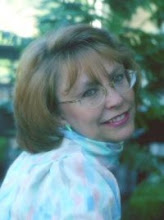I have the author of the suspense thriller The Society with us today. If you have ever wondered what goes into writing a book and the uncertainty authors wade through, this post sheds a light on the situation.
The Elizabeth Grant thriller, The Society, was nearly one of those manuscripts that sat in drawer gathering dust. It started nearly fifteen years ago and the plot and concept evolved over the years. Initially, I wanted to use repressed memories slowly surfacing to reveal the secret society and conspiracy. Over the years that changed to a very reluctant young woman who sees ghosts. Her ability isn’t welcome and she fears it is a myriad of other problems from mental illness to a brain tumor. Once that element settled in I was writing in earnest.
As part of my author journey I joined a critique group and scenes/concepts were challenged. I learned what worked and what needed work. I grew as a writer and the plot was strengthened as a result. I gained support for my story, which became key later. But, I took a side trip and wrote not just one, but three cozy mysteries under a pen name since they were very different styles. Even though The Society was back-burnered, I was still working on it and the first draft was three-fourths done when history stepped in.
For the first time in modern history, the KKK openly endorsed a presidential candidate and it didn’t adversely hurt the candidate’s campaign. Doubts assailed me that my book I’d spent years growing and working on was now passé. Who would believe you needed a secret society to enact a white nationalist agenda when it seemed you could openly run? I feared my carefully cultivated book that I deeply wanted to see completed and published was now too dated.
That’s when my fellow writers and critique partners continued
The Society almost didn’t get finished, let alone published. Looking back, I am so grateful for all the persistent encouragement to finish the book I had spent years laboring over.
~ ~ ~ ~ ~ ~ ~ ~
The Society by C.G. Abbot
When Elizabeth Grant sees her childhood friend, she is
thrown into a world of secret societies laced with conspiracies.
Elizabeth has been plagued with visions since the disappearance of Loralie. When she returns to the small town of her childhood, she’s unaware that she’s walking into the middle of what killed her friend.
Unknown to the rest of the world, The Society for a Restored America has been preparing to seize control of the government through manipulation of a national crisis. The Society's membership has already infiltrated the government and military at the highest levels. The only thing between them and success is Elizabeth Grant.
Elizabeth must accept her special gift and stay alive long enough to uncover the Society's dark plot to seize control from a nation that blindly supports them.
Reviews of The Society
"The Society was a well written book that made what could have been a crazy conspiracy theory into a thrilling plot that did not fail to grab my attention for a single moment. This book was an amazing thriller with a great cast of characters that all had their own unique backgrounds that clearly showed off the author's talent of bringing together plots and characters into one amazing story!" Sefina Hawk's Books
"Such a strong read! I love diving into the world of secret societies and conspiracies but often find myself lost with the intricate details. C.G. Abbot kept me intrigued without getting me lost in the details. It was so real-feeling that I had goosebumps! Every page turn led to another piece of the puzzle that left me wanting more. I'm so glad I was able to start this series - definitely a keeper!" Lynchburg Mama
"The Society was filled with plots to take over the government and the one person that could stand in their way being there at just the right time to just maybe make a difference. Elizabeth Grant was a strong female character who had no idea what she was walking into, yet with so much on the line she had to persevere. It was her perseverance that really made her such an amazing character that kept my interest for the whole book." Books for Books
#TheSociety #SuspenseThriller

























